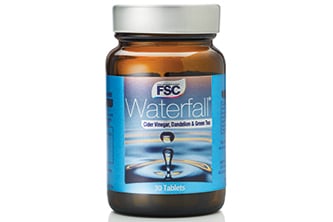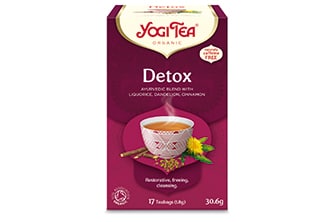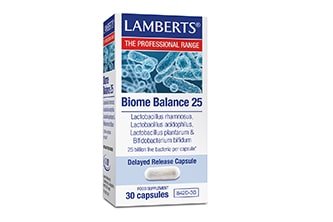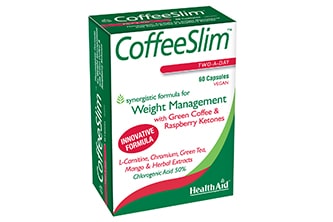Whether your customers are looking to add some pounds or shed a few, Jane Wolfe confirms that good nutrition remains the cornerstone for healthy weight management and looks at how gut microbe composition can be a factor
Weight management has evolved into a much wider category than just ‘slimming’, spanning a range of desired outcomes sought for a variety of reasons – from bulking up for sports fitness or to achieve a healthy weight after illness or in old age.
In fact, ever since 2017, searches for ‘weight loss tips’ have reached their lowest point since 2004, according to analysis of Google Trends data conducted by bulk.com. It says consumers are no longer seeking fad diets to slim but instead want tips on how to achieve a strong physique.
“Over the years, there has been a significant shift in attitudes towards body image and fitness,” says Abigail Roberts, sports nutritionist at bulk.com. “From trend to trend and body standard to body standard, we have gone through many changes that have largely been unrealistic … During the ’90s and early 2000s, there was a widespread emphasis on being thin and petite. From the late 2000s … however, we began to strive for more athletic and muscular physiques. This shift in mindset can be attributed to the rise of social media influencers promoting weight-lifting and muscle-building, as well as trends such as ‘strong, not skinny’.
“As a result, hours of cardio and calorie restriction seem to be becoming a thing of the past as people focus more on exercise and nutrition for mental and physical health and functionality … there has been a growing emphasis on body positivity and inclusivity, with a greater recognition of diverse body shapes and sizes and a more democratized view of beauty.”
However, we can’t ignore the very real problem of obesity; in March, the World Obesity Federation warned that 51% of the global population (over four billion people) will be living with either overweight or obesity by 2035 if current trends continue.
“Very few people are completely happy with their weight, so it’s a big health issue”
“I deal with people who are both overweight and underweight, but overweight is certainly more prevalent at the moment,” says nutritionist Suzie Sawyer, adding that about 50% of her clients talk to her about losing weight. “If it’s not necessarily an issue they have outlined initially, weight always becomes part of the discussion at some stage. Very few people are completely happy with their weight, so it’s a big health issue for sure, and also affects mental wellbeing.”
Sawyer stresses the importance of tailored weight loss advice. “Because we are all individual with our own biochemistry, what works for one may not work for another. Plus, genes play a role, especially when it comes to the production of the satiety and hunger hormones, leptin and ghrelin. And everyone is different in how they want to address the problem. My main aim is to get people on an eating plan that is for life and is sustainable (and right for them!).”
And it is vital to address the root cause: “Is it just that overall calorie intake is too high or are there hormonal imbalances, blood sugar issues, problems with the gut and gut microbiome, or psychological issues around food? The body can only lose 1-2lbs of fat a week, so slow and steady is the way forward, also to enable the metabolism to reset.”
Quick-fix fears
High street chemists including Boots and Superdrug will soon be offering a weight loss option that is not so slow and steady: the controversial injection Wegovy. With reported users including Elon Musk and Kim Kardashian, Wegovy contains the diabetes drug Semaglutide, a prescription medicine that mimics the action of the GLP-1 hormone, curbing the appetite and making users feel fuller.
“It can be an effective medicine to achieve sustained weight loss when used alongside a reduced calorie diet, increased physical activity and healthy lifestyle choices,” says a Boots spokesperson. “Customers will have access to treatment following their completion of an online consultation form, which will be assessed by a clinician.”
However, there are fears Wegovy could be misused. Tom Quinn, director of external affairs at eating disorder charity Beat, warns: “Weight-loss medications … can be extremely attractive to people with eating disorders as they appear to provide quick results. However, these medications can be very dangerous … It’s very alarming that patients in the clinical trial of Semaglutide experienced side effects such as nausea and vomiting, which could potentially trigger an eating disorder or worsen symptoms for someone who is already unwell.”
There has been a growing emphasis on body positivity and inclusivity
Commenting on these types of diet drugs, Sawyer says she’s concerned that people may use them as a ‘prop’ rather than addressing underlying health issues and looking at their diets: “It is important for people to discover healthy eating habits that are for life, and these ‘fixes’ won’t help that.”
The gut connection
There is a rising interest in probiotics when it comes to weight loss, with studies showing benefits such as appetite suppression, a reduction in the body’s ability to store fat and an increase in the body’s ability to expel fat in stools. And now, research from the University of Copenhagen suggests that the composition of a person’s gut microbes may be related to why some people gain more weight than others even when they follow the same diet and exercise regimes.
The researchers studied the residual energy in participants’ faeces to estimate how effective their gut microbes were at extracting energy from food, while also mapping the composition. They found that about 40% of the participants had the B-type composition (dominated by Bacteroides bacteria) which made them more effective at extracting nutrients from food than the other 60%. It was also observed that those who extracted the most energy from food weighed 10% more on average (an extra 9kg), leading to the conclusion that these people may be disadvantaged by having gut bacteria that are too effective at extracting energy.
“The fact that our gut bacteria are great at extracting energy from food is basically a good thing, as the bacteria’s metabolism of food provides extra energy in the form of, for example, short-chain fatty acids, which are molecules that our body can use as energy-supplying fuel. But if we consume more than we burn, the extra energy provided by the intestinal bacteria may increase the risk of obesity over time,” says Associate Professor Henrik Roager of the University of Copenhagen’s Department of Nutrition, Exercise and Sports. “We may have found a key to understanding why some people gain more weight than others, even when they don’t eat more or any differently. But this needs to be investigated further.”
Continuing with the gut bacteria connection, Camilla Gray, who leads the nutrition team at Optibac Probiotics, would like to see more research around the action of probiotics on weight. “At the moment the research into probiotics for weight management is very exciting but further studies are still needed to determine the ideal strains for supplementation. Hopefully, in the next few years we’ll see some clinically researched strains for this purpose. Weight management can be a very complex area and natural supplements should be part of a holistic protocol, alongside other diet and lifestyle interventions, rather than just in isolation.
“Probiotics have shown promise for metabolic syndrome and early studies … have shown that the gut microbiome is implicated in obesity. In addition to the overconsumption of calories and lack of exercise, there can be other causes for weight gain, including incomplete food digestion, food intolerances or hormonal changes and bloating, constipation and a sluggish digestion. Improving digestion and bowel motility using probiotic supplements can certainly help to alleviate these factors.
“Certain probiotic strains such as Lactobacillus acidophilus NCFM (as in Optibac’s Every Day EXTRA and MAX) can reduce bloating and gas; these are common symptoms associated with weight issues. Probiotics can produce some B vitamins which are used by the body to produce energy, and certain strains also produce short chain fatty acids like butyrate which help to fuel our gut muscles which helps the food move along our digestive tract and prevents constipation. If constipation or sluggish digestion is an issue, this can impede weight loss, so taking a supplement containing Bifidobacterium lactis BB-12, which has been shown to support gut motility, can also be helpful.”
Age-related weight loss
Sawyer says that it becomes even more important to maintain a healthy weight in later life as the body becomes much more prone to health issues, especially degenerative diseases. She adds that it’s quite common for older people to lose their appetite and become underweight, partly due to their more sedentary lifestyles. “Being overweight puts the body at risk, but being underweight is also a problem because of potential nutrient depletion. If calorie intake is reduced then people are at risk of nutrient deficiencies, which will adversely affect energy levels and overall health. Having sufficient protein is especially important in later life to protect bone mass, especially for women post menopause.
Preparing and eating food brings people together
“It’s important to include plenty of nutrient-dense foods such as quality protein (animal and vegetable), lots of colour variety (fruits and vegetables), wholegrains, healthy fats from nuts, seeds and avocados, plus oily fish and low sugar. Older people often ‘fill up’ on sugar-laden snacks and then have no appetite for healthy meals.”
To encourage healthy eating in later years, Sawyer advises that meals should be packed with colour to make them look more appealing on the plate and that eating small, frequent meals makes them more manageable and avoids feelings of being overly full. Involvement in meal preparation is also beneficial, as ‘preparing and eating food brings people together.”
The modified Med diet
A study published in BMC Medicine proposes that the green Mediterranean diet (MED) – a modified version of the Mediterranean diet – can significantly reduce visceral adipose tissue, a type of fat around internal organs that is linked to heart disease, diabetes, dementia and premature death.
The green MED diet is enriched with dietary polyphenols and lower in red/processed meat than the traditional healthy Mediterranean diet, and in the trial, on top of 28g walnuts, participants also consumed three to four cups of green tea and 100g of duckweed green shake daily.
In the large-scale clinical DIRECT PLUS trial, the green Mediterranean diet was compared with the Mediterranean diet and a healthy diet, and was found to reduce visceral fat by 14%, compared with 7% and 4.5% respectively.
“A healthy lifestyle is a strong basis for any weight loss programme,” says lead researcher Professor Shai of Ben-Gurion University of the Negev, Israel. “We learned from the results of our experiment that the quality of food is no less important than the number of calories consumed, and the goal today is to understand the mechanisms of various nutrients … on the pace of fat cell differentiation and their aggregation in the viscera.”
WHO advises against NSS for weight control
A new guideline from the World Health Organization (WHO) has recommended against the use of non-sugar sweeteners (NSS) to control body weight.
The guidance suggests that not only does the use of NSS produce no long-term benefit in reducing body fat, but that long-term use may produce negative effects, including increased risk of type 2 diabetes, cardiovascular disease and mortality in adults.
WHO director for nutrition and food safety, Francesco Branca, says: “Replacing free sugars with NSS does not help with weight control in the long term. People need to consider other ways to reduce free sugars intake, such as consuming food with naturally occurring sugars, like fruit, or unsweetened food and beverages. NSS are not essential dietary factors and have no nutritional value. People should reduce the sweetness of the diet altogether, starting early in life, to improve their health.”
The recommendation, which doesn’t apply to those with pre-existing diabetes, includes all synthetic and naturally occurring or modified non-nutritive sweeteners that aren’t classified as sugars, including acesulfame K, aspartame, advantame, cyclamates, neotame, saccharin, sucralose, stevia and stevia derivatives.
 FSC Waterfall
FSC Waterfall
FSC
Tel: 0800 083 0356
E-mail: [email protected]
www.fscsupplements.com
FSC Waterfall is a carefully formulated blend of herbal supplements, including Dandelion Extract, Green Tea and Cider Vinegar to naturally help eliminate excess water and bloating.
All FSC supplements are made in the UK with the finest ingredients and based on widely recognised scientific evidence of their health qualities.
FSC Waterfall is suitable for Vegetarians and it is recommended to take one tablet in the morning, preferably with food.
 Yogi Tea® Detox Organic
Yogi Tea® Detox Organic
Yogi Tea distributed by Euro Food Brands
Tel: 01604 821200
E-mail: [email protected]
www.yogitea.com/en/
An important step to greater balance: let go of things that are weighing you down and relax for a few minutes in your own company to achieve a self that is at peace with itself. With its balanced blend of herbs and spices such as liquorice, ginger and dandelion, YOGI TEA® Detox is perfect for this wonderful journey. Restorative, freeing and cleansing, this tea is for everyone ready for a fresh start. For a perfect brew, pour 250ml of freshly boiled water over the teabag and allow to infuse for 5 to 6 minutes, or longer for a stronger flavour.
 Biome Balance 25
Biome Balance 25
Lamberts Healthcare Ltd
Tel: 01892 554313
E-mail: [email protected]
www.lambertshealthcare.co.uk
This unique live bacteria formula combines Lactobacillus plantarum and Lactobacillus rhamnosus, both strains are the focus of fascinating new clinical studies, with the exceptionally well-researched Lactobacillus acidophilus and Bifidobacterium bifidum. These strains work synergistically to balance the gut microbiome.
Lamberts® Biome Balance contains 25 billion live bacteria, scientifically proven to reach the gut alive. Ensuring that the live bacteria can survive passage to the gut and thrive once they arrive is quite a science. To do this our products utilise:
A special delayed release capsules, a desiccant built into the tube wall of the pot and refrigerated storage until despatch.
 NutraTrim – Weight Management Tea
NutraTrim – Weight Management Tea
NutraTea
Tel: 020 3146 7150
E-mail: [email protected]
www.nutratea.co.uk
NutraTrim® by NutraTea® is 1 of 22 functional herbal teas that has been expertly formulated by pharmacists and nutritionists to aid in weight management and help support metabolism. This unique herbal blend contains 100% active botanicals that have been sustainably sourced including Alder Buckthorn, Kelp, Dandelion Root and many more well-established ingredients to help increase satiety and support digestion. This comprehensive herbal tea blend contains no flavourings, oils or excipients allowing each biodegradable tea bag to be reused throughout the day, offering a tasty way to help with weight control whilst maintaining a natural digestive function.
 CoffeeSlim™ Help Support Weight Loss
CoffeeSlim™ Help Support Weight Loss
HealthAid Ltd
Tel: 020 8426 3400
E-mail: [email protected]
www.HealthAid.co.uk
CoffeeSlim™ is a new weight management supplement with essential ingredients, such as Green Coffee Bean, Raspberry Ketones, Green Tea, African Mango Seed, Blueberry Extract, Cayenne Pepper, and Chicory Root. Green Coffee Bean Extract help’s to release fatty acids from fat stored in the body. Chlorogenic acid helps the liver to process these fatty acids more efficiently. Raspberry Ketones are naturally occurring phenolic compounds found in red raspberries which help curb appetite and cravings for food. CoffeeSlim™ has the additional benefit of key Amino acids and Minerals to help support, healthy metabolism, and weight management. Suitable for Vegans
CoffeeSlim™ retails at £23.99 for 60 capsules.
Contact HealthAid Ltd
on 020 8426 3400 for purchase and stockist information or visit www.healthaid.co.uk.











